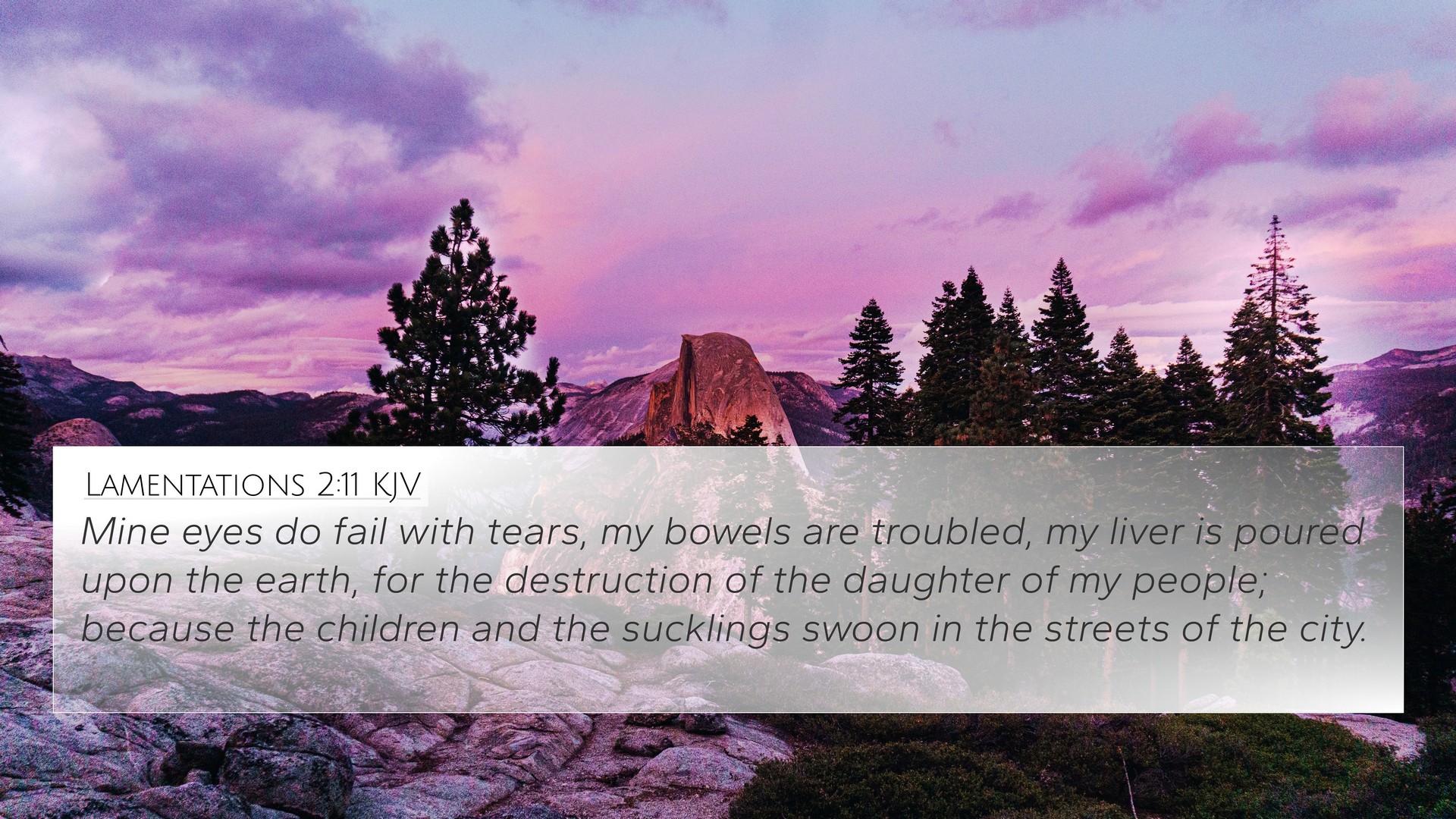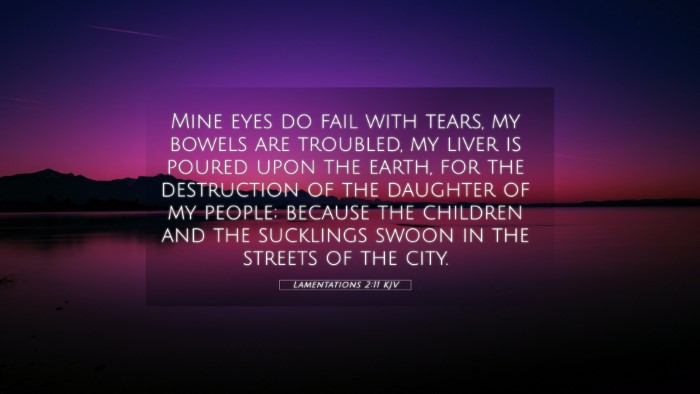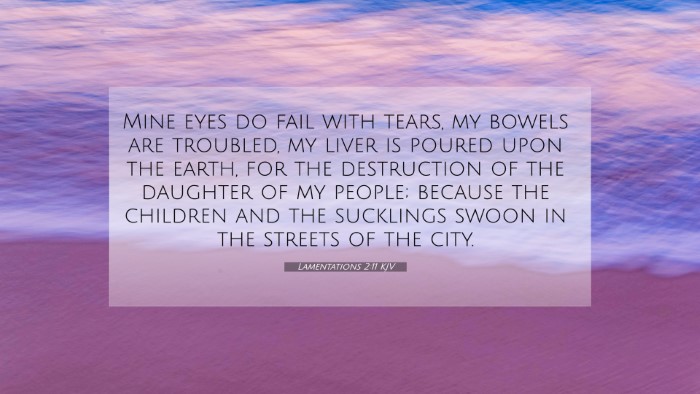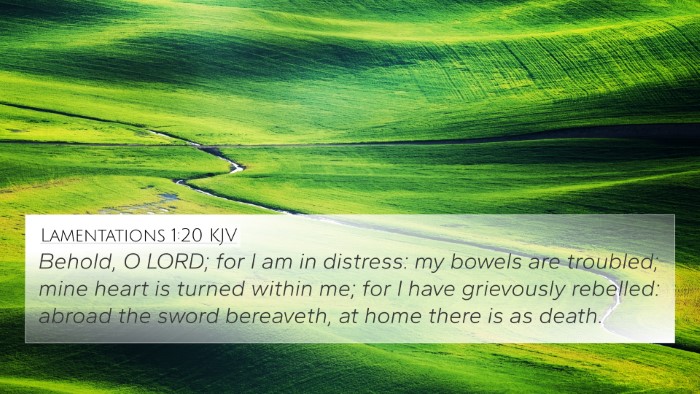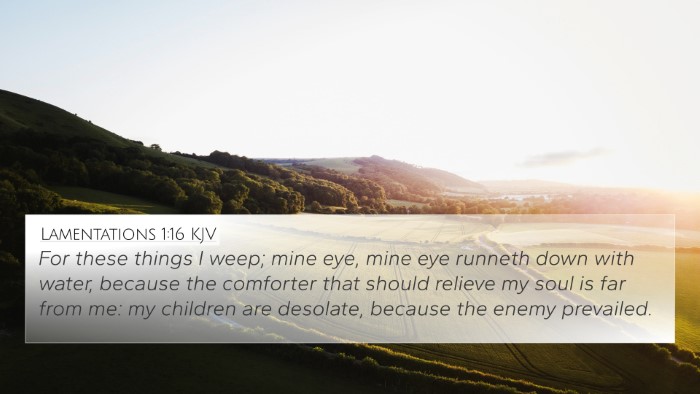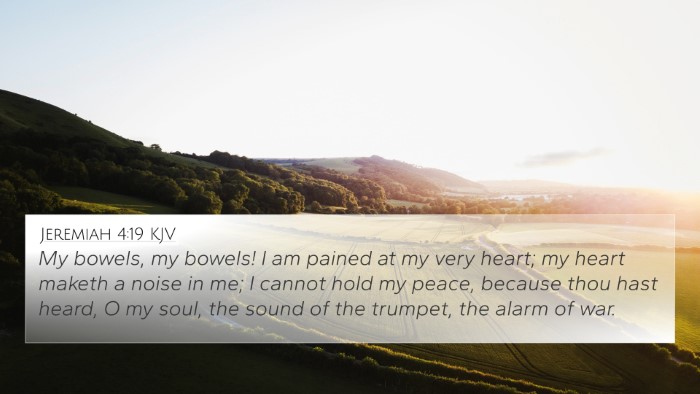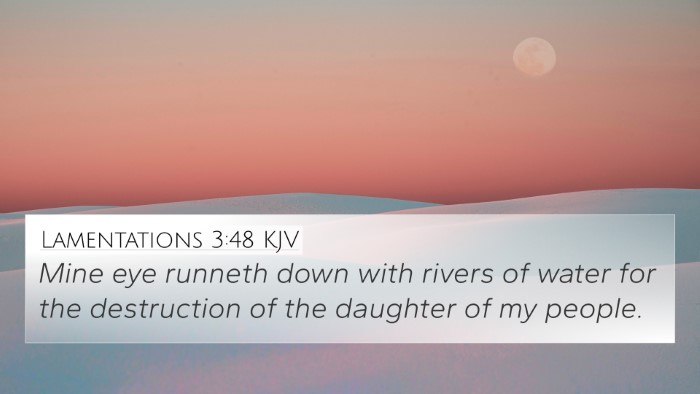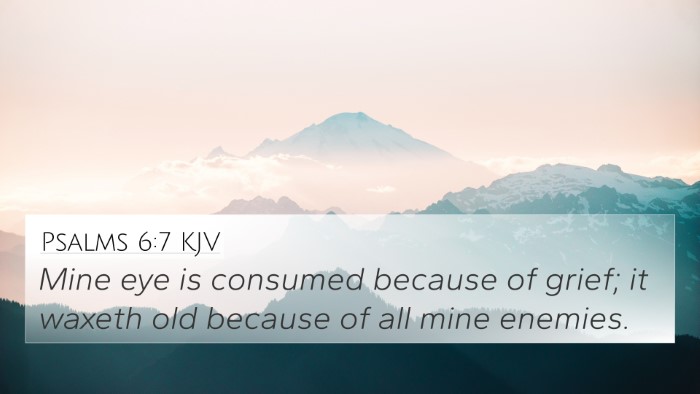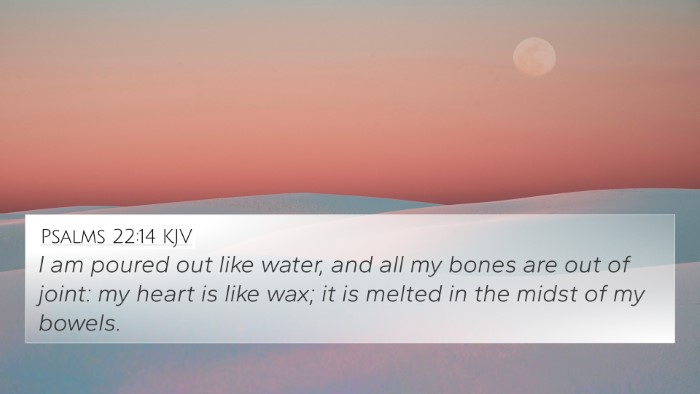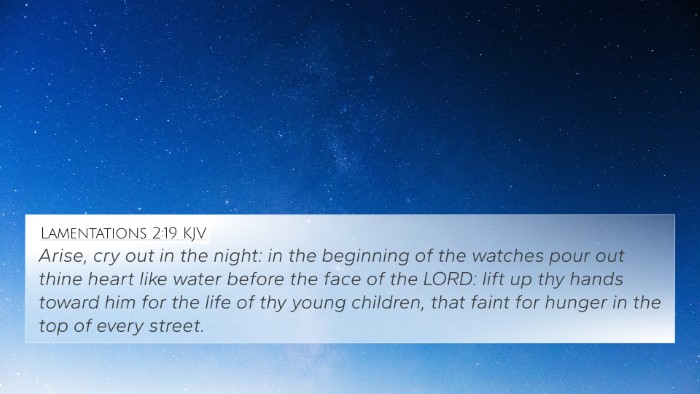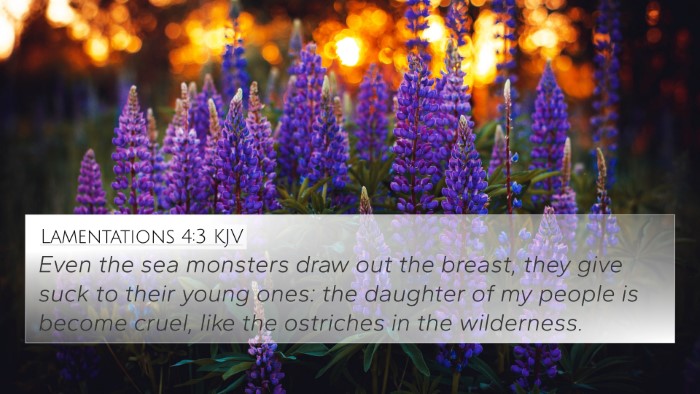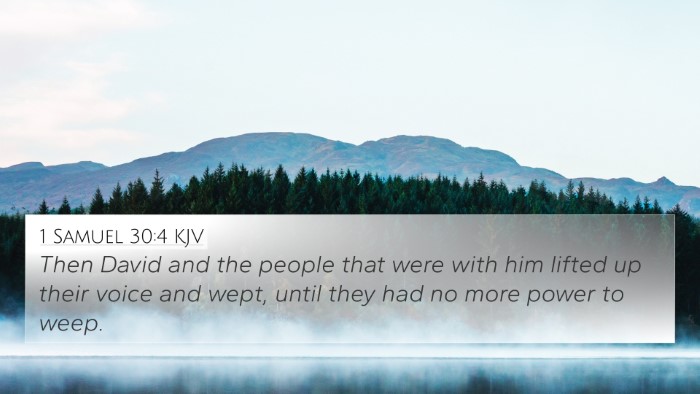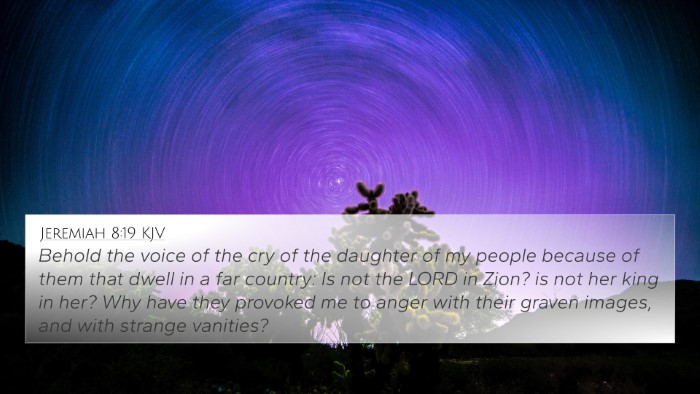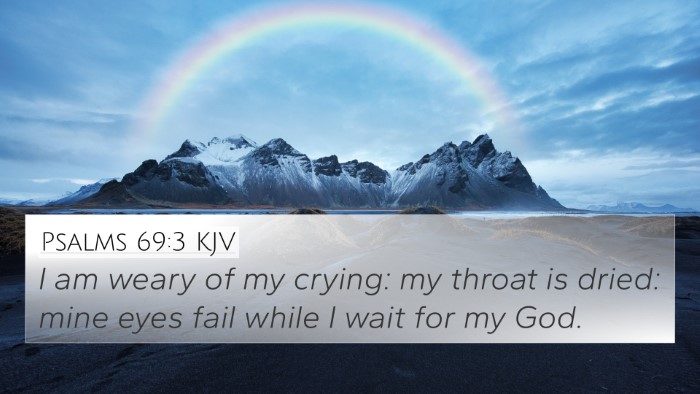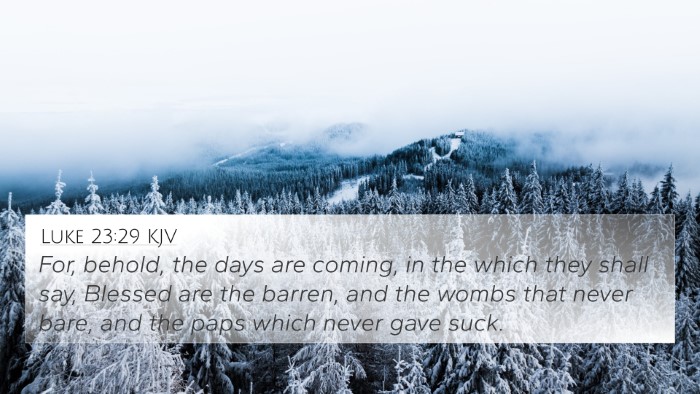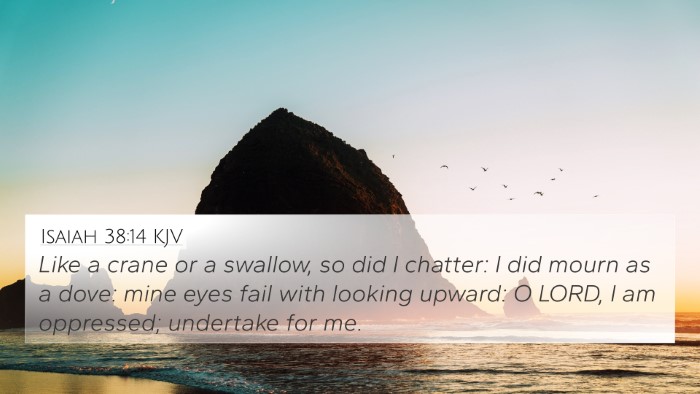Lamentations 2:11 - Biblical Meaning and Interpretation
The verse Lamentations 2:11 states, "Mine eye doth fail with tears, my bowels are troubled, my liver is poured upon the earth, for the destruction of the daughter of my people; because the children and the sucklings swoon in the streets of the city." This poignant expression of sorrow provides a deep insight into the emotional reaction toward the devastation experienced by Jerusalem. In this summary, we delve into the meanings and implications drawn from various public domain commentaries to better understand this scripture.
Summary of Key Insights
-
Matthew Henry's Commentary:
Matthew Henry emphasizes the overflowing sorrow and pain of the prophet, reflecting on the harsh realities of loss and devastation. The imagery of failing eyes and troubled bowels connects deeply with the emotional state of the individual witnessing tragedy. Henry relates this emotional turmoil to the collective grief of a nation mourning the loss of their children and stability, drawing parallels to other biblical expressions of lament.
-
Albert Barnes' Notes:
Albert Barnes explains that this verse exemplifies an acute sense of pity and compassion. The physical manifestations of grief—the failing eyes and troubled liver—symbolize the profound despair that afflicts the heart during such catastrophic events. Barnes also suggests that such visceral language is employed to engage the reader emotionally, allowing them to empathize with the tragedy unfolding. He cross-references similar expressions of emotions found throughout the scriptures.
-
Adam Clarke's Commentary:
Adam Clarke highlights the metaphorical use of “liver” as a symbol of deep inner emotions, rooted in the cultural understandings of the time. Clarke notes that the graphic descriptions serve to evoke a visceral reaction to the misery of the people. The reference to children and infants illustrates the innocence lost in the midst of chaos, prompting Clarke to discuss the broader implications regarding divine justice and mercy.
Bible Verse Cross-References
Lamentations 2:11 connects with various Scripture passages that explore themes of grief, lament, and divine justice. Significant cross-references include:
- Jeremiah 9:1: "Oh that my head were waters, and mine eyes a fountain of tears, that I might weep day and night for the slain of the daughter of my people!"
- Psalms 6:6: "I am weary with my groaning; all the night make I my bed to swim; I water my couch with my tears."
- Psalms 42:3: "My tears have been my meat day and night, while they continually say unto me, Where is thy God?"
- Lamentations 1:16: "For these things I weep; mine eye, mine eye runneth down with water, because the comforter that should relieve my soul is far from me."
- Matthew 23:37: "O Jerusalem, Jerusalem, thou that killest the prophets, and stonest them which are sent unto thee, how often would I have gathered thy children together, even as a hen gathereth her chickens under her wings!"
- Romans 9:1-2: “I say the truth in Christ, I lie not, my conscience also bearing me witness in the Holy Ghost, that I have great heaviness and continual sorrow in my heart.”
- Luke 19:41: "And when he was come near, he beheld the city, and wept over it.”
Thematic Connections
The verse opens a dialogue on the psychological impact of communal suffering and divine judgment throughout the texts. The theme of sorrow in Lamentations resonates with other biblical passages that highlight the deep emotional and spiritual struggles faced by the faithful in times of calamity. This connection can be seen in the lamentations of the Psalms, the prophetic woes of Jesus, and the apostolic reflections on grief.
Practical Applications for Cross-Referencing
For those looking to understand these connections, tools for Bible cross-referencing can facilitate a deeper study. Bible concordances serve as foundational resources, helping to identify thematic verses, while cross-reference systems and guides enhance the exploration of inter-Biblical dialogues. Utilizing a comprehensive Bible cross-reference guide can uncover links between similar themes of sorrow, divine intervention, and hope, enriching one's spiritual reflections and understanding.
Conclusion
Lamentations 2:11 serves as a powerful reminder of the depth of human emotion in the face of devastation. The collective insights from Matthew Henry, Albert Barnes, and Adam Clarke illuminate the personal and communal dimensions of sorrow in biblical history. This exploration emphasizes the richness of Scripture and the importance of cross-referencing biblical texts for a holistic understanding of God’s word and its applications in our lives today.
Keywords for Further Study: Bible verse cross-references, connections between Bible verses, linking Bible scriptures, thematic Bible verse connections, cross-referencing Bible study methods.
